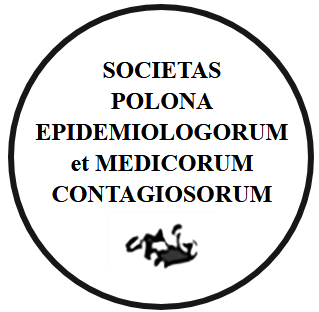RESEARCH PAPER
Limited adherence to personal hygiene of school-aged children and people over 60 as a continuing challenge for health educators
1
Department of Family Medicine and Public Health, Faculty of Medicine, University of Opole, Polska
2
Department of Health Promotion, Institute of Basic Sciences,, University of Physical Education in Cracow, Polska
Submission date: 2024-03-06
Final revision date: 2024-05-09
Acceptance date: 2024-05-16
Online publication date: 2024-06-05
Publication date: 2024-06-07
Corresponding author
Urszula Michalik - Marcinkowska
Department of Family Medicine and Public Health, Faculty of Medicine, University of Opole, Polska
Department of Family Medicine and Public Health, Faculty of Medicine, University of Opole, Polska
Przegl Epidemiol 2024;78(1):94-106
KEYWORDS
TOPICS
ABSTRACT
Background: Hygienic behavior as such belongs to health behavior, acquired at home, at school, at workplace or through the mass-media. Objective: The aim of the study was to analyze the perception of personal hygiene among different age groups and the sociodemographic factors related to hygiene behavior. Material and methods: The author’s questionnaire for children and seniors concerning selected hygienic behavior was used. The questionnaire was conducted in two groups: 200 primary school children in age: 8-11 years; 109 girls and 91 boys and 200 older people: young-old (60-74 years) and old-old (75+); 110 women and 90 men. Results: Girls longer than boys take morning hygiene behavior, but statistically boys spend more time on evening washing, cleaning and brushing. Seniors hygienic behavior depend on age: young-old are more likely take a shower every day (51.79%) than seniors in the old-old group (29.86%). The same statistically significant difference was noticed in case of washing hands before a meal. Conclusions: Children care more about personal hygiene than older people. Age, not gender, is a factor determining the frequency of hygiene practices among older people. Young-old care more about personal hygiene than old-old.
Share
RELATED ARTICLE
We process personal data collected when visiting the website. The function of obtaining information about users and their behavior is carried out by voluntarily entered information in forms and saving cookies in end devices. Data, including cookies, are used to provide services, improve the user experience and to analyze the traffic in accordance with the Privacy policy. Data are also collected and processed by Google Analytics tool (more).
You can change cookies settings in your browser. Restricted use of cookies in the browser configuration may affect some functionalities of the website.
You can change cookies settings in your browser. Restricted use of cookies in the browser configuration may affect some functionalities of the website.





